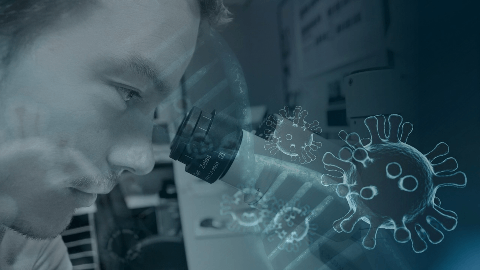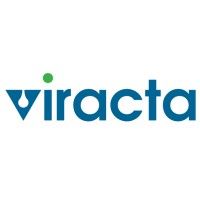预约演示
更新于:2025-05-07
HDAC2 x HDAC1
更新于:2025-05-07
关联
46
项与 HDAC2 x HDAC1 相关的药物作用机制 HDAC抑制剂 [+2] |
在研机构 |
原研机构 |
在研适应症 |
非在研适应症- |
最高研发阶段临床2/3期 |
首次获批国家/地区- |
首次获批日期1800-01-20 |
作用机制 EGFR拮抗剂 [+3] |
在研适应症 |
非在研适应症- |
最高研发阶段临床2期 |
首次获批国家/地区- |
首次获批日期1800-01-20 |
作用机制 DNA-指导DNA聚合酶抑制剂 [+3] |
在研机构 |
在研适应症 |
非在研适应症 |
最高研发阶段临床2期 |
首次获批国家/地区- |
首次获批日期1800-01-20 |
69
项与 HDAC2 x HDAC1 相关的临床试验CTR20244549
评价HG146胶囊治疗复发或转移性腺样囊性癌患者有效性及安全性的II期临床研究
初步评价HG146胶囊治疗复发或转移性腺样囊性癌患者的有效性、群体药代动力学(PopPK)特性(仅第一阶段)、生活质量;进一步评价HG146胶囊治疗复发或转移性腺样囊性癌患者的安全性。
开始日期2024-12-24 |
申办/合作机构 |
NCT06781567
A Phase Il Clinical Study to Evaluate the Efficacy and Safety of HG146 Capsules in Participants with Recurrent or Metastatic Adenoid Cystic Carcinoma.
This is a Phase II, open-label, non-randomized, multicenter study to evaluate the clinical efficacy and safety of HG146 in participants with recurrent or metastatic adenoid cystic carcinoma. This study is divided into two stages. 40 participants will be enrolled in the first stage. The efficacy and safty data will apply to make go or no go decision. Then the second stage will continue to enroll 100 Particapants.
开始日期2024-12-13 |
申办/合作机构 |
CTR20241633
注射用甲磺酸普依司他联合泊马度胺胶囊、低剂量地塞米松治疗复发或难治性多发性骨髓瘤患者的有效性和安全性的开放、平行对照、多中心Ib/IIa期临床研究
主要目的 Ib期 确定注射用甲磺酸普依司他联合固定剂量泊马度胺胶囊、地塞米松在复发或难治性的多发性骨髓瘤(RRMM)患者中的最大耐受剂量(MTD),IIa期推荐剂量(RP2D)。 IIa期 进一步评价RP2D剂量注射用甲磺酸普依司他联合固定剂量泊马度胺胶囊、地塞米松在复发或难治性多发性骨髓瘤(RRMM)患者中的初步有效性。 次要目的 Ib期 1.评价注射用甲磺酸普依司他联合固定剂量泊马度胺胶囊、地塞米松在治疗复发或难治性多发性骨髓瘤(RRMM)患者中的安全性和耐受性; 2.评价注射用甲磺酸普依司他联合固定剂量泊马度胺胶囊、地塞米松后在复发或难治性多发性骨髓瘤(RRMM)患者中的药代动力学指标和药效学指标; 3.观察注射用甲磺酸普依司他联合固定剂量泊马度胺胶囊、地塞米松在复发或难治性多发性骨髓瘤(RRMM)患者中的疗效。 IIa期 1.评价注射用甲磺酸普依司他联合固定剂量泊马度胺胶囊、地塞米松在复发或难治性多发性骨髓瘤(RRMM)患者中的安全性和耐受性。 2.评估注射用甲磺酸普依司他联合固定剂量泊马度胺胶囊、地塞米松在复发或难治性多发性骨髓瘤(RRMM)患者中的群体药代动力学特征。
开始日期2024-06-05 |
申办/合作机构 |
100 项与 HDAC2 x HDAC1 相关的临床结果
登录后查看更多信息
100 项与 HDAC2 x HDAC1 相关的转化医学
登录后查看更多信息
0 项与 HDAC2 x HDAC1 相关的专利(医药)
登录后查看更多信息
850
项与 HDAC2 x HDAC1 相关的文献(医药)2025-06-01·Bioorganic Chemistry
Synthesis and biological evaluation of the Fluoro analog of Romidepsin with improved selectivity for class I histone deacetylases (HDACs)
Article
作者: Song, Xinluo ; Zhang, Wei ; Wang, Hanqi ; Gao, Ya ; Lei, Xinsheng
2025-06-01·IBRO Neuroscience Reports
Acupuncture ameliorates inflammation by regulating gut microbiota in acute ischemic stroke
Article
作者: Dong, Juwei ; Yuan, Hongwei ; Xu, Jingni ; Xiong, Zhihao ; Ni, Jinxia ; Zhang, Ziniu ; Yan, Haoyue ; Yang, Lei ; Wu, Xiaona ; Hua, Yini
2025-04-01·Tuberculosis and Respiratory Diseases
Comparison of Anticancer Effects of Histone Deacetylase Inhibitors CG-745 and Suberoylanilide Hydroxamic Acid in Non-small Cell Lung Cancer
Article
作者: Hwang, Ki Eun ; An, Ui Ri ; Yoon, Han Jee ; Lim, Hyun ; Kim, Young Suk ; Kim, Hyo Jin ; Kim, Hak Ryul
21
项与 HDAC2 x HDAC1 相关的新闻(医药)2025-03-29
·学术经纬
撰文 | 吴大荣 责编 | 周叶斌理解突变如何导致蛋白质-蛋白质相互作用的改变,以及这些改变如何驱动肿瘤的发生,仍癌症研究一个重要的未解决问题。KBTBD4是一种CULLIN3-RING E3泛素连接酶复合物的底物受体,其突变在髓母细胞瘤中频繁出现,而这些突变使KBTBD4 获得功能,从而诱导转录辅阻遏物CoREST5的异常降解。近日,Brian B. Liau 和合作伙伴们在 Nature 上发表题为 Converging mechanism of UM171 and KBTBD4 neomorphic cancer mutations 文章,揭示了功能获得性E3突变和分子胶降解剂UM171之间基于形状互补性的吻合机制,证明HDAC1/2抑制剂可以阻断突变型KBTBD4–HDAC1界面和KBTBD4突变型髓母细胞瘤细胞的增殖。在泛素-蛋白酶体系统中,人类疾病突变早已知道会损害几种E3泛素连接酶的功能。相比之下,促进底物蛋白异常降解的E3功能获得性突变最近被发现。尽管有通过改变连接酶稳定性或调节性导致非计划的底物泛素化的多形态(hypermorphic)E3突变病例,但直接诱导新底物参与和降解的E3突变,即“新降解”,是E3连接酶失调的新例子。KBTBD4(一种 CULLIN3-RING E3 连接酶的底物受体)的癌症突变主要发生在 KELCH 重复 β 螺旋桨 2b-2c 环的热点中,具有相当大的分子多样性,包括1-5 个氨基酸的插入或缺失(insertion or deletion)以及点替换。值得注意的是,KBTBD4 还参与了 UM171 的机制,后者是一种诱导 CoREST 降解的造血干细胞扩增小分子激动剂。为揭示UM171 和 KBTBD4 癌症突变之间惊人的相似机制, 该团队做了几个关键实验:深度突变扫描:绘制了KBTBD4 癌症热点的突变图,揭示了插入和替换可以促进功能获得的不同偏好以及热点相互作用中有关的关键残基。KBTBD4的癌症突变通过直接靶向HDAC1/2,促进CoREST(一种控制染色质可及性和转录的复合物)的降解,这种降解会改变表观遗传程序,进而改变转录程序,促进癌细胞干细胞的增加,从而驱动肿瘤发生。冷冻电子显微镜分析:对与 LSD1–HDAC1–CoREST (LHC 综合体)结合的两个不同 KBTBD4 癌症突变体的低温电子显微镜分析表明,KBTBD4 同型二聚体与 HDAC1 不对称地结合,具有两个 KELCH 重复的β-螺旋结构域。髓母细胞瘤突变稳定了 HDAC1 和其中一个 KBTBD4 β-螺旋之间的界面,使一个庞大的侧链插入 HDAC1 活性位点。最近的研究表明,KBTBD4作用机制与UM171 相吻合, UM171 通过促进 CoREST 的泛素化和降解在表型上和髓母细胞瘤中KBTBD4突变相似。在相关的研究中,研究人员确定UM171的加入稳定了KBTBD4-LHC 复合物的结构,并证明了UM171充当分子胶以诱导 E3 和 HDAC1 之间的复合物形成。比较KBTBD4-UM171-LHC 复合物与两个和LHC 结合的 KBTBD4突变体之间的结构,明显看出两机制的吻合,如图1所示。通过该机制,分子胶和癌症突变可以补充和优化 E3 连接酶和 HDAC1 之间较差的蛋白质-蛋白质界面,从而驱动它们的结合。图1,左-UM171(黄色和蓝色棒)、突变型KBTBD4- Tyr312 侧链(青色和红色棒)以及另一突变型 KBTBD4- Arg312 侧链(绿色和蓝色棒)在 HDAC1 活性位点口袋处(粉色)的比较。深紫色棒显示了两个苯丙氨酸残基,勾勒出 HDAC1 活性位点通道的入口。右- UM171(黄色和蓝色棒状图)与 突变型KBTBD4的 2b-2c 环状图的比较,其中 KBTBD4–UM171–HDAC1 结构通过 HDAC1 与突变型 KBTBD4–HDAC1 结构叠加,界面处关键残基的侧链以红色棒状标示。药物干预实验:结构和深度突变扫描结果表明KBTBD4 MB 突变体通过去乙酰化酶活性位点的热点相互作用直接与 HDAC1/2 结合,从而促进 CoREST 降解。这些观察结果意味着HDAC1/2 活性位点抑制剂可以在空间上阻断突变连接酶的结合,从而阻断其致癌功能。突变型KBTBD4-HDAC1 与与辛二酰苯胺羟肟酸 (SAHA) 结合的 HDAC2 的叠加分析支持这一观点,即 HDAC1/2 抑制剂和插入的精氨酸残基可能会发生位置冲突。用SAHA,CI-994(一种 2-氨基苯甲酰胺衍生的抑制剂)和RBC1HI(新型 HDAC1/HDAC2 抑制剂,Regenacy Brain I 类 HDAC 抑制剂)进行试验, 证明了这三种抑制剂可以保全由两种突变KBTBD4-P 和 KBTBD4-PR 表达引起的 CoREST 降解, 如图2所示。图2,左-SAHA(黄色)与 突变型KBTBD4 2b-2c 环(绿色)中央精氨酸残基之间的位置冲突。右-细胞增殖实验, DMSO,SAHA,CI-994或 RBC1HI与带有标示的KBTBD4 突变体之间的荧光素信号(纵轴),两次生物学重复了解突变是如何实现新蛋白质-蛋白质相互作用(PPI)的分子机制不仅对于理解疾病病因至关重要,而且对于指导治疗方法(例如分子胶和 PPI 抑制剂)用化学调节这些界面也至关重要。该研究表明,KBTBD4的癌症突变通过与HDAC1的相互作用促进CoREST的降解,且可以通过小分子药物进行调节,这为针对KBTBD4突变的治疗提供了新的思路。未来的研究应集中在扩展对其他相关突变的研究,探索其在不同类型癌症中的作用;开发针对KBTBD4突变的特异性治疗策略,例如分子胶UM171和HDAC1/2抑制剂;进一步研究KBTBD4与其他蛋白质的相互作用,以全面理解其在肿瘤发生中的角色。撰文 责编 制作排版 | 车洁 校对 | uu延伸阅读*本文由深圳市拾玉儿童公益基金会“儿童肿瘤前沿”团队编译或约稿,文中图表均源引自文献原文。本文著作权归文章作者所有,欢迎个人转发分享,未经允许禁止转载,作者拥有所有法定权利,违者必究。如需转载,请留言或联系shiyu@curekids.cn。本文旨在分享儿童肿瘤科研前沿成果,不是治疗方案推荐。如需获得疾病治疗方案指导,请前往正规医院就诊。▼滑动查看更多▼原文摘要(Abstract)Cancer mutations can create neomorphic protein-protein interactions to drive aberrant function1,2. As a substrate receptor of the CULLIN3-RING E3 ubiquitin ligase complex, KBTBD4 is recurrently mutated in medulloblastoma3, the most common embryonal brain tumour in children4. These mutations impart gain-of-function to KBTBD4 to induce aberrant degradation of the transcriptional corepressor CoREST5. However, their mechanism remains unresolved. Here we establish that KBTBD4 mutations promote CoREST degradation through engaging HDAC1/2 as the direct target of the mutant substrate receptor. Using deep mutational scanning, we chart the mutational landscape of the KBTBD4 cancer hotspot, revealing distinct preferences by which insertions and substitutions can promote gain-of-function and the critical residues involved in the hotspot interaction. Cryo-electron microscopy analysis of two distinct KBTBD4 cancer mutants bound to LSD1-HDAC1-CoREST reveals that a KBTBD4 homodimer asymmetrically engages HDAC1 with two KELCH-repeat β-propeller domains. The interface between HDAC1 and one of the KBTBD4 β-propellers is stabilized by the medulloblastoma mutations, which insert a bulky side chain into the HDAC1 active site pocket. Our structural and mutational analyses inform how this hotspot E3-neosubstrate interface can be chemically modulated. First, we unveil a converging shape-complementarity-based mechanism between gain-of-function E3 mutations and a molecular glue degrader, UM171. Second, we demonstrate that HDAC1/2 inhibitors can block the mutant KBTBD4-HDAC1 interface and proliferation of KBTBD4-mutant medulloblastoma cells. Altogether, our work reveals the structural and mechanistic basis of cancer mutation-driven neomorphic protein-protein interactions.DOI: 10.1038/s41586-024-08533-3👇点击此处,直达原文
蛋白降解靶向嵌合体
2025-01-16
·小药说药
关注小药说药,一起成长!
前言
遗传和表观遗传变化都是癌症发生、肿瘤进展和转移的重要因素。从广义上讲,癌症的发病率与生物/遗传年龄直接相关。DNA甲基化是一种重要的表观遗传调控机制,在生命周期中不断变化,是“表观遗传衰老”过程的重要组成部分。值得注意的是,最近的研究已经证实表观遗传衰老在肿瘤发生中起主要作用。
表观遗传学改变通过影响广泛组织学中的多种致癌基因与抑癌基因途径,以及通过影响免疫细胞(如T细胞和NK细胞)的激活、分化和功能从而促进癌症的发生。事实上,最近的一项研究表明,正是组织环境诱导的表观遗传编程启动了肿瘤发生,这些发现为表观遗传药物的应用提供了强有力的理论基础,不仅可以作为癌症治疗药物,还可以用于预防癌症,因为它们可以协同靶向“正常”细胞,包括免疫细胞和癌前细胞。
基于表观遗传学的治疗旨在调节影响免疫细胞、其他正常细胞和/或癌细胞中各种信号通路的转录编程,从而影响这些细胞群体的命运。表观遗传药物是作用于细胞表观基因组以发挥其功能的化学物质,这些药物包括DNA甲基转移酶(DNMT)、DNA去甲基酶、组蛋白去乙酰化酶(HDAC)、组蛋白乙酰转移酶(HATs)、组蛋白甲基转移酶(HMT)、组蛋白去甲基酶(HDMs)和其他相关酶的抑制剂。此外,microRNA(miRNA)和长非编码RNA(lncRNAs)也是多种关键生物过程的重要表观遗传介质,包括致癌和免疫反应,这是有效癌症治疗的两个关键靶点。
表观遗传途径
DNA甲基化
DNA甲基化作为一种主要的表观遗传学标记,可通过有丝分裂遗传,并参与稳定基因转录抑制,尤其是当其位于哺乳动物基因转录起始点附近时。研究的最深入的DNA共价修饰是5-甲基胞嘧啶(5mC),这是一种由DNMT催化的标记。
在哺乳动物基因组中,5mC主要存在于CpG二核苷酸中,人类基因组中2800万CpG二核苷酸中70–80%的CpG被甲基化。在哺乳动物中,发现了三种活跃的DNMT,分别命名为DNMT1、DNMT3a和DNMT3b。
组蛋白乙酰化
组蛋白可以经历多种形式的翻译后修饰(PTMs),包括乙酰化、甲基化、磷酸化、泛素化以及ADP核糖基化、磺酰化和瓜氨酸化。这些组成所谓的“组蛋白密码”,调节染色质结构、重塑酶的募集和基因活动的调节。
组蛋白赖氨酸残基的乙酰化影响基因组的组织和功能。组蛋白H3和H4的乙酰化由两组酶决定:HATs和组HDAC。这两组酶决定组蛋白的乙酰化状态,并以可逆方式工作。
在人类中,有18种HDAC酶分为四类:Rpd3样蛋白的I类(HDAC1、HDAC2、HDAC3和HDAC8);类Hda1蛋白的II类(HDAC4、HDAC5、HDAC6、HDAC7、HDAC9和HDAC10);Sir2样蛋白的III类(SIRT1、SIRT2、SIRT3、SIRT4、SIRT5、SIRT6和SIRT7)和第四类蛋白质(HDAC11)。这些酶及其在癌症中的功能已被广泛研究。
组蛋白甲基化
组蛋白甲基化是表观遗传修饰的第三种主要类型。为了完成这一可逆过程,涉及两大类催化甲基加成的酶:蛋白质精氨酸甲基转移酶(PRMT)和组蛋白赖氨酸甲基转移酶(HKMT)。癌症环境中的关键赖氨酸和精氨酸甲基转移酶包括zeste同源物2(EZH2)、G9a、DOT1L以及PRMTs 1和5。另一组称为组蛋白去甲基酶的酶逆转这一过程。
组蛋白磷酸化
磷酸化是另一种高度动态的组蛋白PTM形式。它发生在丝氨酸、苏氨酸和酪氨酸残基上,主要发生在组蛋白N端尾部,受激酶和磷酸酶的竞争作用控制。作为“组蛋白代码”的重要组成部分,PTM在DNA损伤修复、染色质致密化、转录调控以及包括肿瘤发生和癌症进展在内的一系列生物学过程中起着关键作用。
肿瘤微环境的表观遗传调节
肿瘤微环境(TME)由多种细胞类型组成。除肿瘤细胞外,TME还包含多种非上皮细胞类型,包括构成血管系统的细胞(内皮细胞、周细胞和平滑肌细胞)、参与免疫监测的细胞(淋巴细胞、巨噬细胞和肥大细胞)以及基质细胞(即成纤维细胞),这些细胞在细胞外基质(ECM)中,分泌一系列可扩散生长因子、细胞因子和趋化因子。人们早就认识到,癌症发生促进以促血管生成生长因子表达、ECM表达改变、成纤维细胞增殖加速和炎性细胞浸润增加为特征的基质变化。
TME的表观遗传改变控制着组织缺氧状态,并在细胞对缺氧的反应和癌细胞代谢中起着关键作用。表观遗传调控因子可与缺氧诱导转录因子(HIF)家族基因协同工作,在HIF依赖性启动后很长时间内维持缺氧适应的细胞表型。表观遗传变化稳定HIF与其转录靶点的结合,从而影响直接HIF反式激活后的组蛋白去甲基化酶活性,并最终导致缺氧TME中组蛋白修饰和DNA甲基化的整体模式,JMJD1A表达的低氧上调作为信号放大器促进低氧基因表达,最终促进肿瘤生长。
巨噬细胞是TME中的关键固有免疫细胞,它们在TME中调节原发性肿瘤生长、血管生成、转移扩散和肿瘤对介入治疗的反应。在巨噬细胞中,缺氧减弱了Jumonji组蛋白去甲基化酶活性的表达,导致组蛋白H3K9甲基化增加和趋化因子表达降低,从而导致TME内免疫景观的变化。
免疫细胞的表观遗传调节
表观遗传机制在免疫细胞分化和功能中发挥关键作用,确保在不同组织微环境条件下免疫细胞中恰当的基因表达模式。重要的是,表观遗传机制在TME内的免疫细胞和基质细胞类型中起着决定性作用。
固有免疫细胞(髓系细胞和NK细胞)
髓系细胞在适应性免疫系统识别癌细胞中发挥重要作用,并协调炎症和保护性抗肿瘤免疫反应的启动。这些细胞包括粒细胞、单核细胞、巨噬细胞、中性粒细胞、DC和MDSC。
DC细胞启动并协调针对感染和疾病的适应性免疫反应,它们是免疫记忆和免疫耐受发展的核心。树突状细胞迅速整合来自其组织微环境的信号,并相应地对这些信号作出反应,这种动态变化依赖于DC细胞染色质结构的表观遗传变化。
在巨噬细胞中,其功能极化状态需要对靶基因表达进行精确的时间和情境调节。在M1和M2极化期间,表观遗传变化在改变细胞信号和特征基因图谱中发挥作用。
MDSCs在肿瘤形成过程中被诱导,它们介导有效的肿瘤促进活动。研究表明,在肿瘤相关培养基存在的情况下,MDSCs的基因组中存在广泛的去甲基化和某些特殊位点的DNA甲基化,这些和免疫抑制特征的特异性基因增加有关。此外,许多研究表明,组蛋白修饰的表观遗传途径调节MDSCs的各个方面。例如,HDAC11是一种新的表观遗传调节因子,在肿瘤相关的MDSC中调节细胞的扩增和功能。
NK细胞在免疫监视和消除应激、感染或转化细胞方面发挥着重要作用。对于NK细胞,H3K4me3去甲基化酶Kdm5a是细胞激活所必需的。此外,慢性刺激的NK细胞在被肿瘤靶点重新激发时表现出功能紊乱,这些无能的NK细胞表现出特定的表观遗传重编程模式,DNA甲基化发生全基因组改变。
CD4+T细胞
表观遗传学机制在Th1和Th2细胞的细胞分化和功能中起着关键作用。STAT4和STAT6转录因子在辅助性T细胞分化过程中的表观遗传修饰和转录调节中起着调控作用。研究发现,STAT4在促进活跃的表观遗传标记方面具有更为显著的作用,而STAT6在对抗抑制性标记方面具有更为显著的作用。
对于T滤泡辅助细胞(Tfh)细胞,已经证明VHL-HIF-1α轴在通过糖酵解表观遗传重编程启动Tfh细胞发育过程中起着重要作用。EZH2是一种HMT,催化H3K27me3并主要通过HMT活性影响Th1、Th2和Treg细胞。研究表明,EZH2敲除会损害Tfh分化和转录编程的激活。
Treg细胞
Treg细胞的发育严重依赖于FoxP3,FoxP3的表达是最佳Treg抑制活性所必需的,过去几十年的研究表明,增强子区CpG岛的DNA甲基化控制着T细胞中FoxP3的表达。此外,TET-甲基胞嘧啶双加氧酶对Treg细胞的功能稳定性也至关重要。一系列研究证明了TET在维持Treg细胞中稳定的FoxP3表达中的关键作用。
EZH2在Treg细胞中的重要性也得到了证实。EZH2对Treg的分化和T效应细胞的扩张都至关重要,通过遗传或药理学手段破坏Treg细胞中的EZH2活性,导致肿瘤浸润性Treg细胞获得促炎功能,重塑TME,增强CD8+和CD4+效应T细胞的募集和功能,从而消除肿瘤。
CD8+T细胞
基因表达的表观遗传调控在获得和维持CD8+T细胞的效应器功能,以及记忆性CD8+T细胞对抗原再激发的快速而稳健的反应中起着关键作用。表观遗传机制也影响CD8+T细胞的干性及其命运。
组蛋白乙酰化通过效应分子的差异表达促进CD8+T细胞快速而稳健的记忆反应。与原始CD8+T细胞相比,记忆CD8+T细胞中效应基因H3赖氨酸9乙酰化(H3K9Ac)显著提高。此外,HDAC3已被确定为CD8+T细胞效应器分化和细胞毒性潜能的表观遗传调节因子。
肿瘤细胞和免疫分子的表观遗传调节
癌细胞的代谢重编程是公认的癌症标志,这已成为调节抗肿瘤免疫反应的关键免疫抑制机制。代谢重编程和表观遗传重编程是相互关联的,并且在很大程度上,代谢状态决定了癌症的表观遗传学。
糖酵解或氧化磷酸化等代谢途径在炎症和组织修复过程中调节巨噬细胞功能,α-酮戊二酸通过代谢和表观遗传重编程协调巨噬细胞活化至M2表型。糖酵解增强也被确定影响骨桥蛋白基因表达的表观遗传修饰。最终,TME内的代谢条件加强了癌细胞和免疫细胞的表观遗传重编程,导致免疫抑制性微环境,然而,这些表观遗传修饰表现出可通过表观遗传调节剂纠正的可塑性。
在分子水平上,已知与免疫功能(STING)、CD8+细胞毒性T细胞(GzmB、IFN-γ、IL-2、IL-12)和FOXP3+Treg细胞相关的关键效应分子通过表观遗传途径进行调节。事实上,许多细胞因子和趋化因子在癌症中通过表观遗传途径调节。
免疫检查点分子(ICMs)包括程PD-1、CTLA-4、TIM-3、LAG-3以及TIGIT。这些分子及其受体在癌细胞和免疫细胞表面的表达,或其可溶性分泌形式,可帮助肿瘤细胞逃避免疫监视。表观遗传机制在调节TME中ICMs及其受体的表达中起着关键作用。作为一个具体的例子,LAG-3 DNA甲基化与肿瘤和免疫细胞中该免疫检查点分子的表达相关,影响透明细胞肾细胞癌中免疫细胞浸润的命运。
表观遗传靶向药物
表观遗传药物经常与其他免疫刺激剂联合使用,以实现五个目标:1)癌细胞生长停滞;2)诱导肿瘤细胞死亡(通过凋亡、坏死、自噬);3)促进肿瘤相关新抗原的表达以提高免疫细胞识别能力;4.)缺氧逆转和肿瘤血管生成抑制;以及5)TME中免疫细胞(DC、T细胞等)功能的调节。
目前,大量涉及表观遗传调控途径的小分子酶抑制剂或激活剂正被开发用于临床。许多表观遗传药物已获得监管机构批准用于治疗人类恶性肿瘤。
2004年,FDA批准5-azaC(商品名Vidaza)用于骨髓增生异常综合征(MDS)的所有五个阶段,随后于2006年批准了5-aza-dC。这两种药物目前代表了干细胞疗法不适用时MDS的一线疗法。它们也被应用于慢性粒单核细胞白血病(CMML)和AML的治疗。
一些HDAC抑制剂(HDACi)也已获得FDA批准用于临床。Vorinostat和romidepsin是这类药物中最早被批准用于治疗皮肤T细胞淋巴瘤(CTCL)的药物。SAHA,也称为Zolinza或Vorinostat,于2006年获得FDA批准,目前是CTCL患者的第三线治疗选择。Romidepsin是2009年FDA批准的第二种HDAC抑制剂。随后,Belinostat和Panobinostat以及Chidamine均被批准用于治疗复发或难治性外周T细胞淋巴瘤(PTCL)或多发性骨髓瘤。
FDA药品批准的第三波浪潮发生在过去几年中。2017年和2018年,异柠檬酸脱氢酶1和2(IDH1/2)抑制剂Enasidenib和Ivosidenib分别被批准用于治疗复发或难治性AML。最后,在2020年,FDA加速批准了tazemetostat,一种EZH2的抑制剂,用于治疗上皮样肉瘤和复发/难治性滤泡性淋巴瘤。
表观遗传药物的临床前景
到目前为止,除了少数类型的实体瘤、T细胞淋巴瘤、上皮样肉瘤和难治性滤泡性淋巴瘤外,表观遗传学药物在晚期肿瘤中通常无法证明足够的疗效,从而无法获得FDA或其他监管机构的批准。
然而,一些关于实体瘤的临床研究显现出有希望的前景。首先,Tazemetostat是第一类抑制剂的代表,对两种实体瘤有效。单药治疗显示出有临床意义的、持久的反应,并且在经多次治疗的复发性或难治性滤泡性淋巴瘤患者或晚期上皮样肉瘤患者中普遍具有良好的耐受性。
其次,两种或两种以上的表观遗传药物的组合可能是提高治疗抗肿瘤疗效的一个很好的选择。在一项研究中,证明了azacitidine和romidepsin与IFN-α的联合具有很高的治疗潜力,其靶向的是结直肠癌最具侵袭性的细胞成分(即转移细胞和癌干细胞),并调节关键的生存和死亡途径(包括肿瘤ICD)。在另一项研究中,研究人员评估了使用azacitidine和entinostat对复发性转移性非小细胞肺癌患者的联合治疗,在一些难治性NSCLC患者中显示出客观、持久的反应。
此外,在临床前研究中,已报道EZH2抑制剂可增强ICIs的抗肿瘤反应。在一个病例报告中,一名使用EZH2抑制剂(tazemetostat)治疗的SMARCB1阴性脊索瘤患者对放疗的持续全身反应超过2年。功能分析显示,CD8+ T细胞和Treg细胞的肿瘤内和间质浸润显著增加,与T细胞上PD-1和LAG-3检查点分子的表达增强有关。这些结果表明EZH2抑制促进持续的抗肿瘤免疫反应,导致免疫检查点激活。新出现的临床数据也表明,表观遗传药物和ICIs的联合疗法有望用于一系列实体癌患者。
目前,有多项表观遗传药物和ICIs联合治疗的临床试验正在进行中。
小结
令人信服的证据表明,表观遗传调控影响癌细胞、免疫细胞、基质细胞、癌细胞和免疫细胞之间的相互作用以及免疫TME的状态。因此,作为一种干预手段,表观遗传调节本身可以诱导强大的抗肿瘤免疫。
因此,进一步增强免疫治疗效果的一个合理策略是将某些表观遗传调节因子与一种或多种经典免疫治疗方案相结合,如癌症疫苗、ICIs、溶瘤病毒、CAR-T细胞、TCR-T细胞或其他新型免疫刺激剂。表观遗传药物可以诱导ICD并使肿瘤由冷变热,它们可能与其他免疫治疗方案产生协同作用。未来,这些联合治疗方案可能在临床研究中显示出良好的应用前景。
参考文献:
1.Epigenetic modulation of antitumor immunityfor improved cancer immunotherapy. Mol Cancer. 2021; 20: 171.
公众号内回复“ADC”或扫描下方图片中的二维码免费下载《抗体偶联药物:从基础到临床》的PDF格式电子书!
公众号已建立“小药说药专业交流群”微信行业交流群以及读者交流群,扫描下方小编二维码加入,入行业群请主动告知姓名、工作单位和职务。
寡核苷酸核酸药物
2025-01-01
Dec. 26, 2024 -- Viracta Therapeutics, Inc. (Nasdaq: VIRX), a clinical-stage precision oncology company focused on the treatment and prevention of virus-associated cancers that impact patients worldwide, today announced that its Board of Directors has initiated a process to explore a broad range of strategic alternatives.
To maximize its cash runway while the Board conducts its review of strategic alternatives, Viracta has elected to close its ongoing pivotal Phase 2 clinical trial of Nana-val in relapsed/refractory EBV+ lymphomas (the NAVAL-1 trial). The company emphasized that its decision to voluntarily close the trial is not the result of any new safety finding.
“As we continue to look for ways to conserve resources and maximize value for the company, we made the very difficult decision to close the NAVAL-1 study while the Board undertakes its strategic review,” stated Mark Rothera, President and Chief Executive Officer of Viracta. “I would like to thank the physicians and patients who participated in this important study, as well as the Viracta team members who worked so tirelessly on this program. I continue to believe that Nana-val has the potential to improve the treatment of relapsed/refractory EBV+ lymphomas, and I remain hopeful that it will one day be approved.”
Viracta is making this announcement to inform shareholders and the public that the Company is engaging in discussions for strategic alternatives with the goal of maximizing value. Potential alternatives include, but are not limited to, a merger, licensing agreement, sale or other strategic transaction.
There can be no assurance that the exploration of strategic alternatives will result in any agreements or transactions, or as to the timing of any such agreements or transactions. Viracta does not intend to discuss or disclose further developments regarding the exploration of strategic alternatives unless and until its Board of Directors has approved a specific action or otherwise determined that further disclosure is appropriate or required by law.
Viracta is a clinical-stage precision oncology company focused on the treatment and prevention of virus-associated cancers that impact patients worldwide. Viracta’s lead product candidate is an all-oral combination therapy of its proprietary investigational drug, nanatinostat, and the antiviral agent valganciclovir (collectively referred to as Nana-val). Nana-val is currently being evaluated in multiple ongoing clinical trials, including a potentially registrational, global, multicenter, open-label Phase 2 basket trial for the treatment of multiple subtypes of relapsed or refractory (R/R) Epstein-Barr virus-positive (EBV+) lymphoma (NAVAL-1), as well as a multinational, open-label Phase 1b/2 clinical trial for the treatment of patients with recurrent or metastatic (R/M) EBV+ nasopharyngeal carcinoma (NPC) and other advanced EBV+ solid tumors. Viracta is also pursuing the application of its “Kick and Kill” approach in other virus-related cancers.
The content above comes from the network. if any infringement, please contact us to modify.

临床研究
分析
对领域进行一次全面的分析。
登录
或

生物医药百科问答
全新生物医药AI Agent 覆盖科研全链路,让突破性发现快人一步
立即开始免费试用!
智慧芽新药情报库是智慧芽专为生命科学人士构建的基于AI的创新药情报平台,助您全方位提升您的研发与决策效率。
立即开始数据试用!
智慧芽新药库数据也通过智慧芽数据服务平台,以API或者数据包形式对外开放,助您更加充分利用智慧芽新药情报信息。
生物序列数据库
生物药研发创新
免费使用
化学结构数据库
小分子化药研发创新
免费使用




